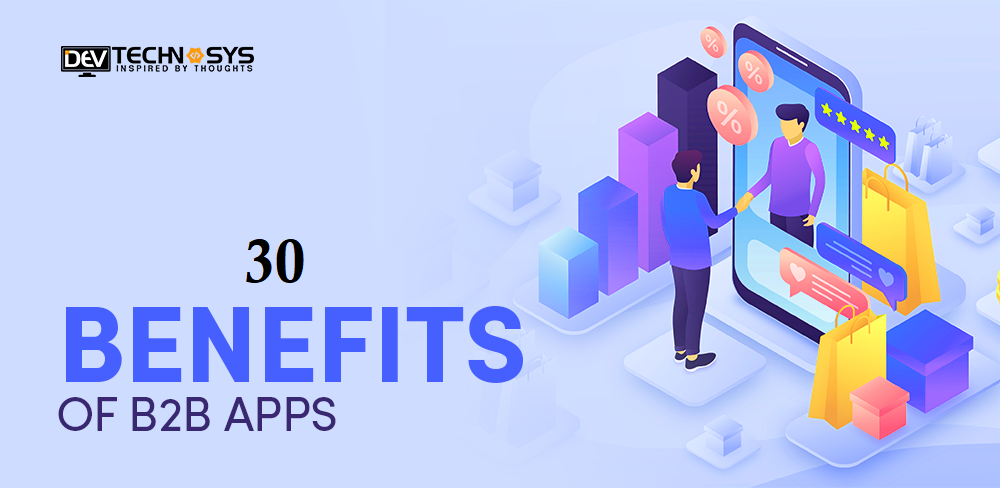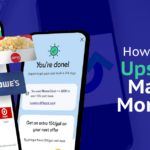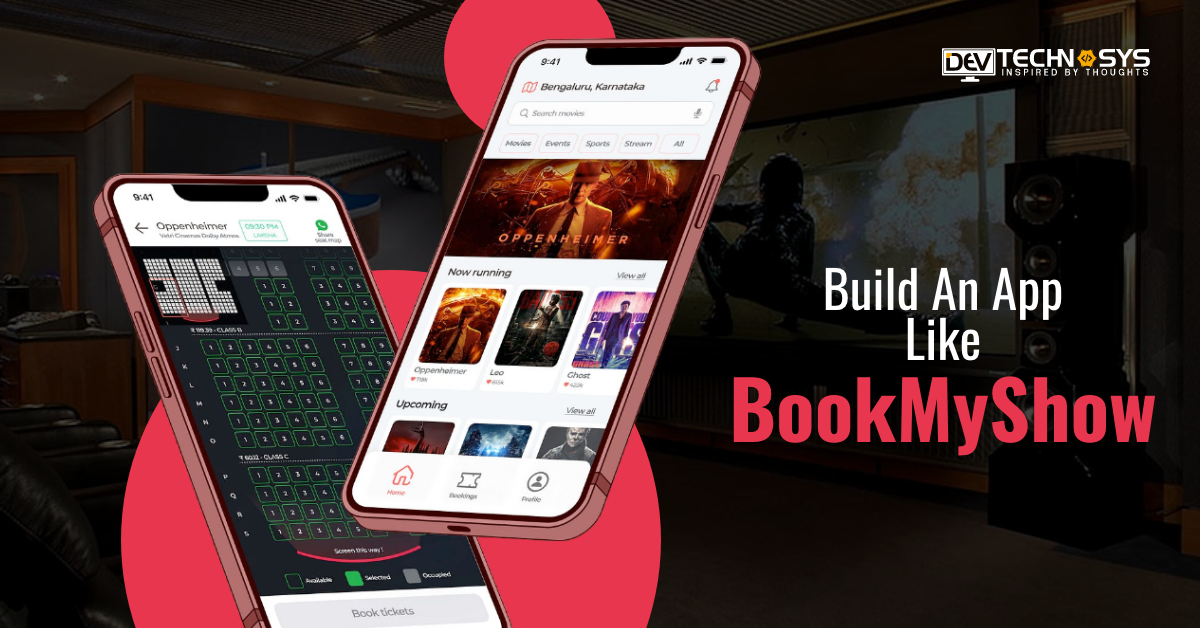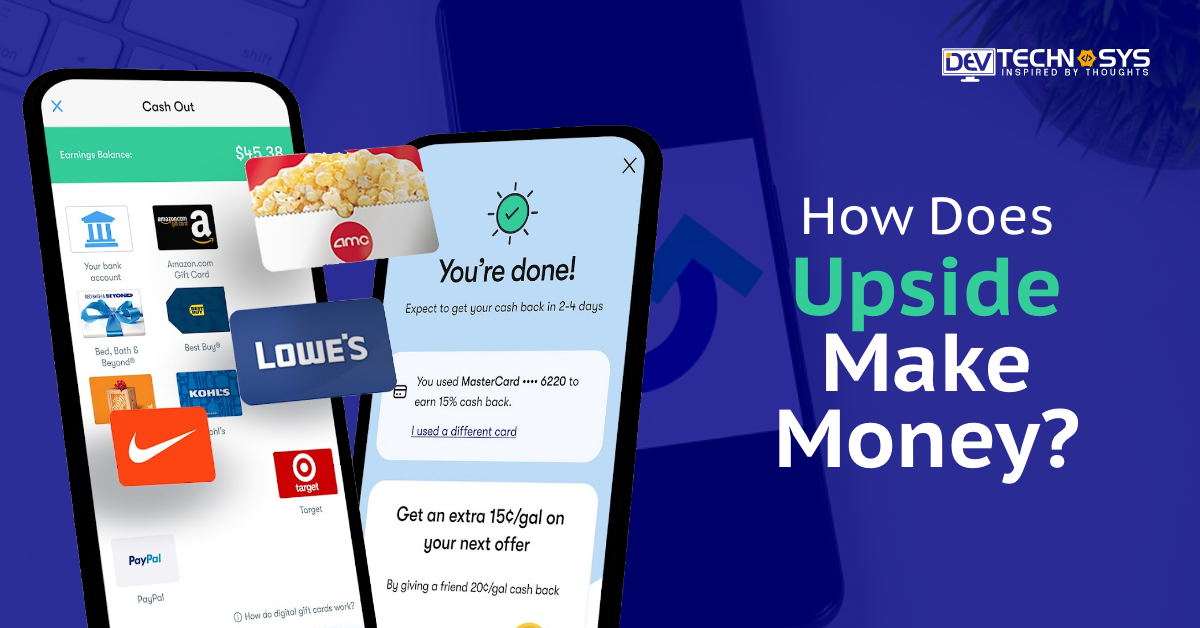The majority of mobile apps offered on app stores are designed for widespread usage by mainstream audiences. Yet, there is a rising need for alternative apps that target corporations and internal stakeholders -B2B apps.
Whether you already have a firm that distributes to other organizations or you’re an entrepreneur looking to establish a B2B business model, developing a B2B app is a wonderful opportunity.
In this blog, we will discuss the top benefits of B2B apps that help businesses to reach greater heights.
Table of Contents
List of 30 Benefits of B2B Apps for Businesses

1. Increased Efficiency in Business Processes
The first benefits of B2B apps can increase efficiency in business processes. This means that using these apps can help businesses perform their tasks faster, with less effort, and with greater accuracy. For example, B2B apps can automate repetitive tasks such as data entry or billing, freeing up employees to focus on more strategic activities.
By streamlining communication between different teams and departments, B2B apps can help prevent delays and reduce errors. This can lead to improved productivity, faster turnaround times, and ultimately, better outcomes for both the business and its customers.
2. Streamlined Communication Between Businesses
The second benefits of B2B apps is that they improve communication between businesses. This means that businesses can easily and quickly communicate with each other, regardless of their location.
This can be particularly useful in industries that rely on partnerships or collaborations between multiple businesses, as it helps to ensure that everyone is on the same page and working towards the same goals.
B2B apps can also help to facilitate communication between businesses and their customers or suppliers, which can help to build stronger relationships and improve the overall customer experience.
3. Enhanced Collaboration Capabilities
The third benefits of B2B apps is enhanced collaboration capabilities. This means that these apps can help businesses work together more effectively by enabling team members to share information, ideas, and resources in real time.
With the help of these apps, team members can collaborate more efficiently and work together towards common goals.
These apps can also improve communication between businesses, making it easier for them to work together on joint projects or initiatives.
Enhanced collaboration capabilities can lead to increased productivity, better decision-making, and improved results for businesses of all sizes. Overall, B2B apps are an essential tool for businesses looking to enhance their collaboration capabilities and work together more effectively.
4. Greater Accessibility to Information
Next one of the benefits of B2B apps is the easy availability of information through B2B apps. In simpler terms, it means that businesses can quickly access the data they need to make informed decisions without having to sift through piles of paperwork or multiple systems.
For example, a sales team can access customer data and order history through a B2B app, enabling them to provide personalized service and make accurate recommendations.
Additionally, managers can view real-time reports on financial performance, inventory levels, and other metrics, allowing them to make better-informed decisions.
5. Real-Time Access to Data
The next benefits of B2B apps is real-time access to data. This means that businesses can access information in real time, meaning they can see the latest updates and changes as they happen. This is significant because it enables organizations to make better-informed choices using the most recent data.
For example, if a business has real-time access to its inventory levels, it can make sure they have enough stock to fulfill orders, which can help prevent delays and keep customers happy.
Real-time data also helps businesses identify trends and patterns more quickly, which can lead to improved forecasting and better decision-making.
6. Better Tracking and Monitoring of Business Metrics
The ability of B2B apps is to provide real-time access to data. In simpler terms, businesses can view and use information as soon as it becomes available, without any delay.
This can help businesses to make more informed decisions quickly, which is essential in today’s fast-paced business environment. Real-time data can also help businesses to respond to changing market conditions or customer needs more effectively.
For example, if a business is using a B2B app to track sales data in real time, it can quickly identify which products or services are selling well and adjust its marketing strategy accordingly to boost sales.
7. Improved Data Analysis Capabilities
The benefits of using B2B apps is improved data analysis capabilities. This means that businesses can use these apps to better understand and make sense of the data they collect, such as customer information, sales figures, and other metrics.
With improved data analysis capabilities, businesses can identify trends, spot opportunities for growth, and make better decisions based on data-driven insights.
This can help businesses stay ahead of the competition and make more informed decisions about their operations, products, and services.
8. Enhanced Security and Data Protection
The next benefits of B2B apps is about the importance of enhanced security and data protection. Businesses rely on the exchange of sensitive information with their partners and suppliers through these apps, which makes them vulnerable to cyber-attacks and data breaches.
Strong security measures assist to ensure that information is kept secret and protected from unwanted access. This includes measures such as encryption, firewalls, access controls, and regular security audits.
By prioritizing security and data protection, businesses can build trust with their partners and avoid costly data breaches that could harm their reputation and bottom line.
9. Simplified Billing and Payment Processes
One of the benefits of B2B apps is that they simplify billing and payment processes. This means that businesses can easily create and send invoices, receive payments, and track their financial transactions in a more efficient way.
With the help of these apps, businesses can automate their billing and payment processes, reducing the chances of errors and ensuring accuracy in financial transactions.
By streamlining the payment processes, B2B apps help businesses save time and resources that can be used to focus on other important aspects of their operations.
This can also improve the overall financial health of the business, as they can keep track of their invoices and payments more easily.
10. Increased accuracy in Financial Transactions
This is among the benefits of B2B apps that can help businesses to achieve greater accuracy in financial transactions. This means that using B2B apps can significantly reduce the likelihood of errors in financial processes such as billing and payments.
This increased accuracy can save businesses time and money, as well as improve their reputation and relationships with customers and partners.
Additionally, B2B apps can provide real-time updates and notifications on financial transactions, making it easier for businesses to stay on top of their finances and make informed decisions.
11. Faster Processing Times for Transactions
The next benefits of B2B apps refers to the ability of B2B apps to process transactions faster. This means that businesses can complete financial transactions, such as payments, more quickly, which can help them to save time and resources.
Faster transaction processing times can also help to improve the overall efficiency of business operations, as employees will not have to spend as much time on manual transaction processing.
Additionally, faster transactions can lead to improved accuracy, reducing the risk of errors or discrepancies in financial records.
12. Improved Inventory Management
The next benefits of B2B apps is the importance of improved inventory management in B2B apps. In simpler terms, inventory management refers to the process of keeping track of a company’s stock of goods and supplies.
This includes monitoring the number of items in stock, ensuring that stock levels are sufficient to meet demand, and managing the flow of goods in and out of the business.
B2B apps can help businesses automate and streamline these processes, which can lead to reduced costs, improved efficiency, and better customer satisfaction. By having better control over inventory, companies can ensure that they have the right products on hand when customers need them, which can improve sales and profitability.
13. Reduced Operational Costs
It refers to the benefits that B2B apps can provide for inventory management. With a B2B app, businesses can easily track their inventory levels in real-time, which allows them to quickly identify when they need to reorder products. This helps to reduce the risk of stockouts, which can result in lost sales and dissatisfied customers.
Additionally, B2B apps can help businesses to better manage their inventory by providing data on the popularity of specific products and their sales performance, which can inform decisions on what products to stock and how much to order. Ultimately, effective inventory management can lead to cost savings, increased efficiency, and improved customer satisfaction.
14. Increased Customer Satisfaction
The next benefits of B2B apps is “Reduced operational costs”. B2B apps can help businesses reduce their operational costs by streamlining their processes, improving their efficiency, and automating their tasks.
By using B2B apps, businesses can eliminate the need for manual data entry, reduce errors and delays, and avoid unnecessary expenses.
This can result in significant cost savings over time, which can be reinvested in other areas of the business or passed on to customers in the form of lower prices. Ultimately, reducing operational costs can help businesses become more competitive, profitable, and
sustainable in the long run.
15. Increased Revenue and Profitability
It refers to the fact that using B2B apps can increase your business’s revenue and profitability. This is because these apps can help you streamline your operations, reduce costs, and improve customer satisfaction, all of which can have a positive impact on your bottom line.
For example, by using B2B apps to automate your billing and payment processes, you can reduce the time and effort required to complete these tasks, which can save you money and increase the speed at which you get paid.
Additionally, by improving your customer experience through better communication and service, you can increase customer loyalty and retention, which can lead to more sales and revenue over time.
16. Greater Customer Retention
The next benefits of B2B apps on the list is “Increased customer retention.” This means that B2B apps can help businesses keep their customers loyal and coming back for more.
By using B2B apps, businesses can provide their customers with a better experience, such as faster and more accurate billing and payment processes, improved customer support and service, and easier access to information.
This can help businesses build stronger relationships with their customers, which can lead to increased sales and profitability.
Additionally, loyal customers are more likely to recommend a business to others, which can help attract new customers and grow the business further.
17. Improved Customer Experience
“Increased customer satisfaction” is the next benefits of B2B apps. When businesses use B2B apps, they are able to improve the customer experience by providing more personalized and efficient services.
This can be achieved by utilizing features such as real-time communication, faster billing and payment processing, and better customer support.
By using B2B apps, businesses can also gather valuable insights into their customers’ preferences and behaviors, which can be used to tailor their products or services accordingly.
Ultimately, this leads to happier and more loyal customers, which is important for any business looking to succeed and grow in the long term.
18. Enhanced Brand Recognition and Reputation
The next benefit is how B2B apps can improve brand recognition and reputation. Essentially, when businesses use B2B apps to improve their operations, it can have a positive impact on how they are perceived by others in the industry.
By using B2B apps to streamline processes, enhance customer experience, and improve communication, businesses can establish a reputation for being efficient, innovative, and customer-focused.
This can lead to increased trust, loyalty, and positive word-of-mouth marketing, which in turn can help businesses attract new customers and grow their brand.
19. Improved Marketing and Advertising Capabilities
The next benefits of B2B apps are “Improved marketing and advertising capabilities.” This means that B2B apps can help businesses reach their target audience more effectively through various marketing and advertising strategies.
B2B apps can provide businesses with tools to analyze customer behavior, preferences, and needs, which can help them create more personalized and relevant marketing messages.
These apps can also provide businesses with real-time data on the performance of their marketing campaigns, allowing them to make adjustments to improve their effectiveness. Overall, B2B apps can help businesses improve their marketing and advertising efforts and increase their chances of reaching and engaging with their target audience.
20. Improved Customer Segmentation and Targeting
The next benefits of B2B apps are “Improved customer segmentation and targeting”. This means that B2B apps can help businesses better understand their customers by gathering data and insights about their behavior, preferences, and needs.
With this information, businesses can create more targeted and personalized marketing campaigns and sales strategies to attract and retain customers. This can lead to increased sales and conversions, as well as improved customer satisfaction and loyalty.
21. Increased Sales and Conversions
Increased sales and conversions are on the list of benefits of B2B apps. B2B apps can help businesses improve their sales and conversion rates by providing better customer segmentation and targeting.
With access to real-time data and analytics, businesses can more effectively identify their target audience and tailor their marketing efforts to meet their specific needs.
B2B apps can also simplify the sales process, making it easier for customers to make purchases and complete transactions. By improving the overall customer experience, B2B apps can increase customer satisfaction and ultimately lead to more sales and conversions for the business.
22. Improved Customer Engagement
The next benefits suggests that B2B apps can help businesses to better engage with their customers. By using B2B apps, businesses can provide their customers with a more personalized experience and offer them more targeted products and services.
This can help to improve customer satisfaction and loyalty, which can ultimately lead to increased sales and revenue. B2B apps can also help businesses to provide better customer support and service, which can further enhance the customer experience. Overall, the 22nd point highlights the importance of customer engagement and how B2B apps can facilitate this.
23. Enhanced Customer Support and Service
The next point highlights the benefits of B2B apps in improving customer support and service. With the help of B2B apps, businesses can offer more efficient and effective customer service, leading to increased customer satisfaction and loyalty. Customers can easily reach out to businesses for support and receive timely assistance through the app.
Additionally, businesses can use the app to track customer interactions and feedback, which can be used to improve their products and services. In short, B2B apps enable businesses to provide better customer support and service, leading to happier customers and better business outcomes.
24. Greater Customer Loyalty
The next talks about how B2B apps can help businesses build better relationships with their customers. By providing enhanced customer support and service, B2B apps can increase customer satisfaction and loyalty. When businesses use B2B apps to communicate with their customers, they can respond to inquiries and resolve issues more quickly and efficiently.
This not only helps businesses retain their existing customers but also attracts new ones. By providing a better customer experience, businesses can improve their reputation and brand recognition, which can ultimately lead to increased revenue and profitability.
25. Increased Trust Between Businesses
Building trust between businesses is next among the benefits of B2B apps. B2B apps can help businesses establish trust by providing a secure platform for communication and transactions, protecting sensitive information and data, and ensuring compliance with regulations and industry standards.
This can help businesses feel more confident in their interactions with each other, leading to more successful partnerships and long-term relationships. Trust is an essential component of any successful business relationship, and B2B apps can play a crucial role in fostering trust and building strong partnerships between businesses.
26. Improved Supplier Management
By using B2B apps, businesses can streamline their communication with suppliers, track their performance, and monitor their contract compliance. This can help businesses identify potential issues and address them before they escalate.
Additionally, B2B apps can help businesses negotiate better prices and payment terms with suppliers, which can ultimately lead to cost savings. By managing their relationships with suppliers more efficiently, businesses can ensure that they have a reliable supply chain and can deliver high-quality products and services to their customers.
27. Increased Productivity and Time Management
Increased productivity and time management are one of the benefits of B2B apps. This means that businesses using B2B apps can complete their tasks in less time and with greater efficiency, leading to improved productivity.
B2B apps can help businesses allocate their time and resources better, prioritize tasks, and manage their schedules effectively. With streamlined processes and automated workflows, B2B apps can reduce the time and effort required to complete tasks, giving businesses more time to focus on other important areas of their operations.
28. Better Resource Allocation
The next benefits of B2B apps are how B2B apps can increase productivity and help businesses manage their time better.
By using B2B apps, businesses can automate many of their processes and reduce the time and effort required for manual tasks. This can lead to more efficient use of resources and better allocation of time to focus on more important tasks.
With improved time management, businesses can improve their overall productivity, which can help them achieve their goals more quickly and effectively. B2B apps can also provide valuable insights and data that can help businesses make informed decisions about how to allocate their time and resources.
29. Improved Project Management
The next one of the benefits states that B2B apps can help businesses become more productive and better manage their time. By providing tools for project management and resource allocation, B2B apps can help businesses organize their operations more efficiently.
This, in turn, can lead to better use of time and increased productivity. B2B apps can also help businesses stay on top of deadlines and ensure that tasks are completed on time. This can help businesses achieve their goals and objectives more effectively, while also allowing them to respond to changing circumstances and new opportunities in a more agile way.
30. Better Organization of Business Operations
The next step states that using B2B apps can help in organizing business operations in a better way. This means that B2B apps can provide a structured way of managing tasks, assignments, and deadlines in a business.
By using these apps, businesses can streamline their workflows, avoid duplication of work, and allocate resources more efficiently.
This can help in reducing the time and effort required to manage various tasks, resulting in increased productivity and better outcomes. B2B apps can also help businesses to prioritize tasks and focus on critical areas of their operations, which can lead to better decision-making and improved business performance.
Conclusion
The most successful marketing plan makes use of a B2B mobile app. It allows you to communicate with potential customers, entice them with personalized services, and shape their buying decisions. You may also keep an eye on their activities and alter your marketing strategies to match their needs.
The need for business-to-business apps is increasing. If your company is B2B, you must certainly work on developing a mobile app to keep ahead of the competition.
Instead of building an app on your own, you must hire an experienced mobile app development company that can build top-notch B2B benefits.



























